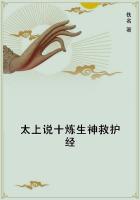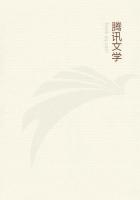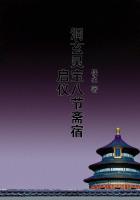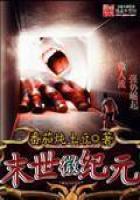But though we may think it time that the quality once over-prized should be restored to a more proportionate honour, our great poet Tennyson shows us that of all merits ease is, unexpectedly enough, the most dangerous. It is not only, with him, that the wards are oiled, it is also that the key turns loosely. This is true of much of the beautiful "Idylls," but not of their best passages, nor of such magnificent heroic verse as that of the close of "A Vision of Sin," or of "Lucretius." As to the question of ease, we cannot have a better maxim than Coventry Patmore's saying that poetry "should confess, but not suffer from, its difficulties." And we could hardly find a more curious example of the present love of verse that not only confesses but brags of difficulties, and not only suffers from them but cries out under the suffering, and shows us the grimace of the pain of it, than I have lighted upon in the critical article of a recent quarterly. Reviewing the book of a "poet" who manifestly has an insuperable difficulty in hacking his work into ten-syllable blocks, and keeping at the same time any show of respect for the national grammar, the critic gravely invites his reader to "note" the phrase "neath cliffs" (apparently for "beneath the cliffs") as "characteristic." Shall the reader indeed "note"such a matter? Truly he has other things to do. This is by the way. Tennyson is always an artist, and the finish of his work is one of the principal notes of his versification. How this finish comports with the excessive ease of his prosody remains his own peculiar secret. Ease, in him, does not mean that he has any unhandsome slovenly ways. On the contrary, he resembles rather the warrior with the pouncet box. It is the man of "neath cliffs" who will not be at the trouble of ****** a place for so much as a definite article. Tennyson certainly WORKED, and the exceeding ease of his blank verse comes perhaps of this little paradox--that he makes somewhat too much show of the hiding of his art.
In the first place the poet with the great welcome style and the little unwelcome manner, Tennyson is, in the second place, the modern poet who withstood France. (That is, of course, modern France--France since the Renaissance. From medieval Provence there is not an English poet who does not own inheritance.) It was some time about the date of the Restoration that modern France began to be modish in England. A ruffle at the Court of Charles, a couplet in the ear of Pope, a tour de phrase from Mme. de Sevigne much to the taste of Walpole, later the good example of French painting--rich interest paid for the loan of our Constable's initiative--later still a scattering of French taste, French critical business, over all the shallow places of our literature--these have all been phases of a national vanity of ours, an eager and anxious fluttering or jostling to be foremost and French. Matthew Arnold's essay on criticism fostered this anxiety, and yet I find in this work of his a lack of easy French knowledge, such as his misunderstanding of the word brutalite, which means no more, or little more, than roughness.
Matthew Arnold, by the way, knew so little of the French character as to be altogether ignorant of French provincialism, French practical sense, and French "convenience." "Convenience" is his dearest word of contempt, "practical sense" his next dearest, and he throws them a score of times in the teeth of the English. Strange is the irony of the truth. For he bestows those withering words on the nation that has the fifty religions, and attributes "ideas"--as the antithesis of "convenience" and "practical sense"--to the nation that has the fifty sauces. And not for a moment does he suspect himself of this blunder, so manifest as to be disconcerting to his reader. One seems to hear an incurably English accent in all this, which indeed is reported, by his acquaintance, of Matthew Arnold's actual speaking of French. It is certain that he has not the interest of familiarity with the language, but only the interest of strangeness. Now, while we meet the effect of the French coat in our seventeenth century, of the French light verse in our earlier eighteenth century, and of French philosophy in our later, of the French revolution in our Wordsworth, of the French painting in our nineteenth-century studios, of French fiction--and the dregs are still running--in our libraries, of French poetry in our Swinburne, of French criticism in our Arnold, Tennyson shows the effect of nothing French whatever. Not the Elizabethans, not Shakespeare, not Jeremy Taylor, not Milton, not Shelley were (in their art, not in their matter) more insular in their time. France, by the way, has more than appreciated the homage of Tennyson's contemporaries;Victor Hugo avers, in Les Miserables, that our people imitate his people in all things, and in particular he rouses in us a delighted laughter of surprise by asserting that the London street-boy imitates the Parisian street-boy. There is, in fact, something of a street-boy in some of our late more literary mimicries.
We are apt to judge a poet too exclusively by his imagery. Tennyson is hardly a great master of imagery. He has more imagination than imagery. He sees the thing, with so luminous a mind's eye, that it is sufficient to him; he needs not to see it more beautifully by a similitude. "A clear-walled city" is enough; "meadows" are enough--indeed Tennyson reigns for ever over all meadows; "the happy birds that change their sky"; "Bright Phosphor, fresher for the night";"Twilight and evening bell"; "the stillness of the central sea";"that friend of mine who lives in God"; "the solitary morning";"Four grey walls and four grey towers"; "Watched by weeping queens";these are enough, illustrious, and needing not illustration.

